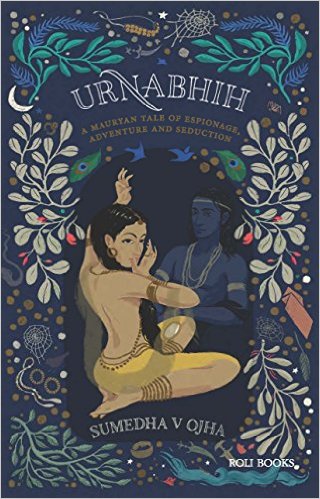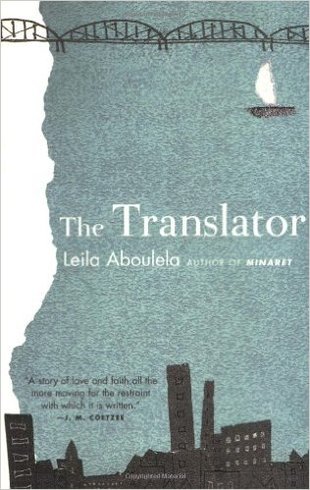I’ve not read many books on historical fiction and I’m not a big fan of the spy theme, but this book, Urnabhih – A Mauryan Tale of Espionage, Adventure and Seduction by Sumedha Ojha had me hooked. While most novels with such a theme focus on the challenges of the ruling clan of such empires, or purely on court intrigue, this book makes a case for the ordinary people who lead extraordinary lives to ensure such empires flourish. The book is incredibly well researched and brings alive the era with such clarity that as a reader, I see the characters in their geography, gain insights into their hopes and fears, and even feel the buzz and excitement of their festivals.
A dancer of incredible beauty and grace, Misrakesi wants to avenge her sister’s killing. Her resolve quickly fades and she agrees to become a spy in the defense of the empire. From then on, she moves from one intrigue to the other. The challenges of empires at that time – from military threat and war to counterfeit coins, from power struggles and intrigue in the courts to the workings of the spy organization, and from the role the sabha grihas (dance houses) play in the gathering and disbursing of information to larger dynamics of the empire are all skillfully woven into the tale.
The mysterious and powerful figure of Chanakya flashes through the story now and then inspiring awe and at times fear, and the ruthless Pushyamitra – the head of the spy organization are the other characters who make up the story. But more than these details, what was heartening was the brand of feminism that came to the fore – at once fragile and strong willed.
The Translator is a book that moves between contrasting landscapes, worlds, and beliefs of Aberdeen, Scotland and Khartoum, Sudan. In the hands of the author, everyday, mundane moments suddenly become evocative and even emotional. These images stay on with the reader. For instance, sample these moments in Khartoum. The sound of the call for prayers, the sudden power cuts and the acceptance of such inconveniences, the mixing of ice cubes in a cool drink on a hot dry summer day – one can relate to these moments so well.
To me, what was most captivating was the main character, Sammar, an Arabic translator working for a Scottish secular scholar, who is trying to make sense of her life in a foreign country after a personal loss. The struggle while coping with grief, the burden of expectations of family, the sense of responsibility and guilt towards ones children, hesitancy in a budding relationship, battling questions of differing faiths – and yet, keeping ones faith in the possibility of a better tomorrow in the backdrop of present day world politics and the troubled Middle East all makes for an engaging read. There’s a brand of quiet feminism at play that is endearing and uplifting at the same time. Incidentally, the name Sammar in Arabic means the night-time conversations in the desert. How beautiful is that for a thought?
My next post will focus entirely on the book In The Time of The Butterflies by Julia Alvarez.


